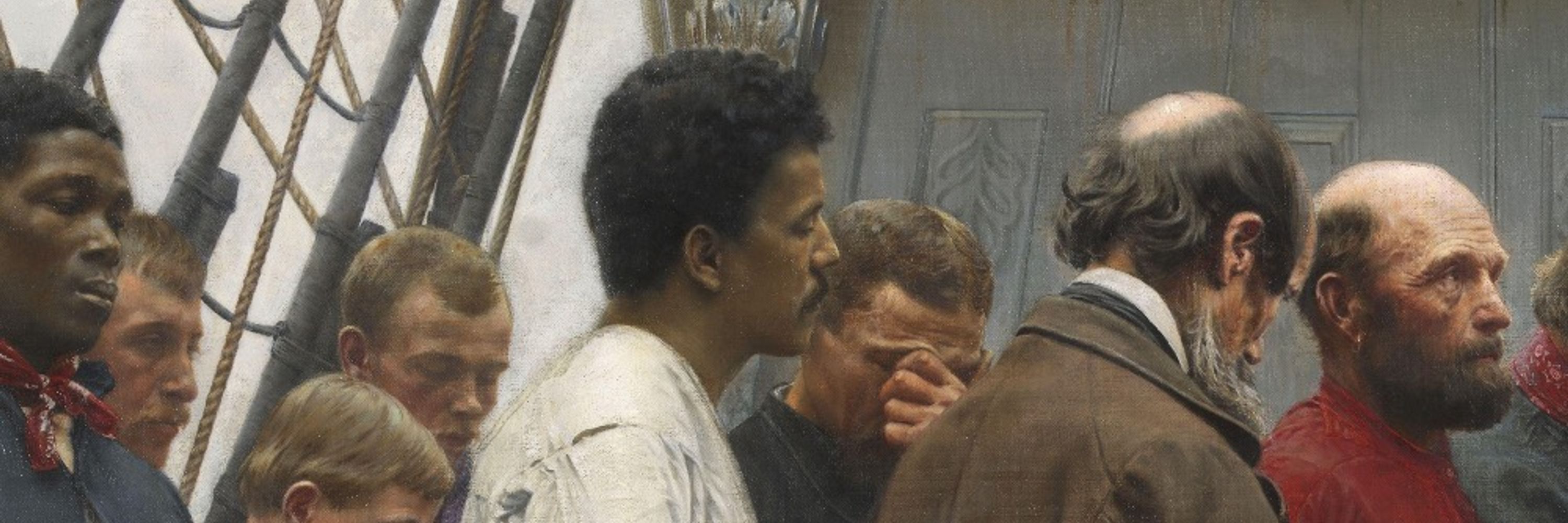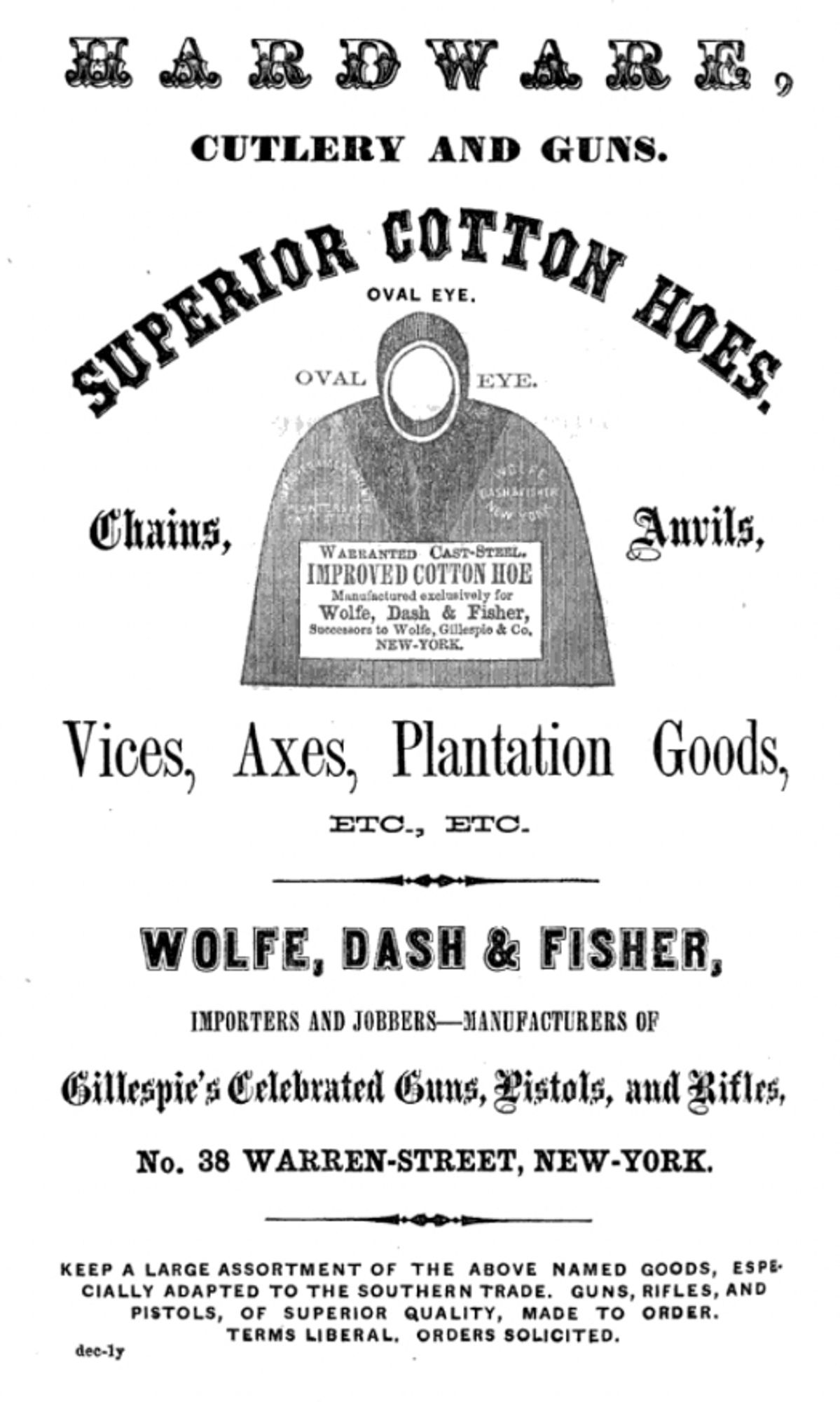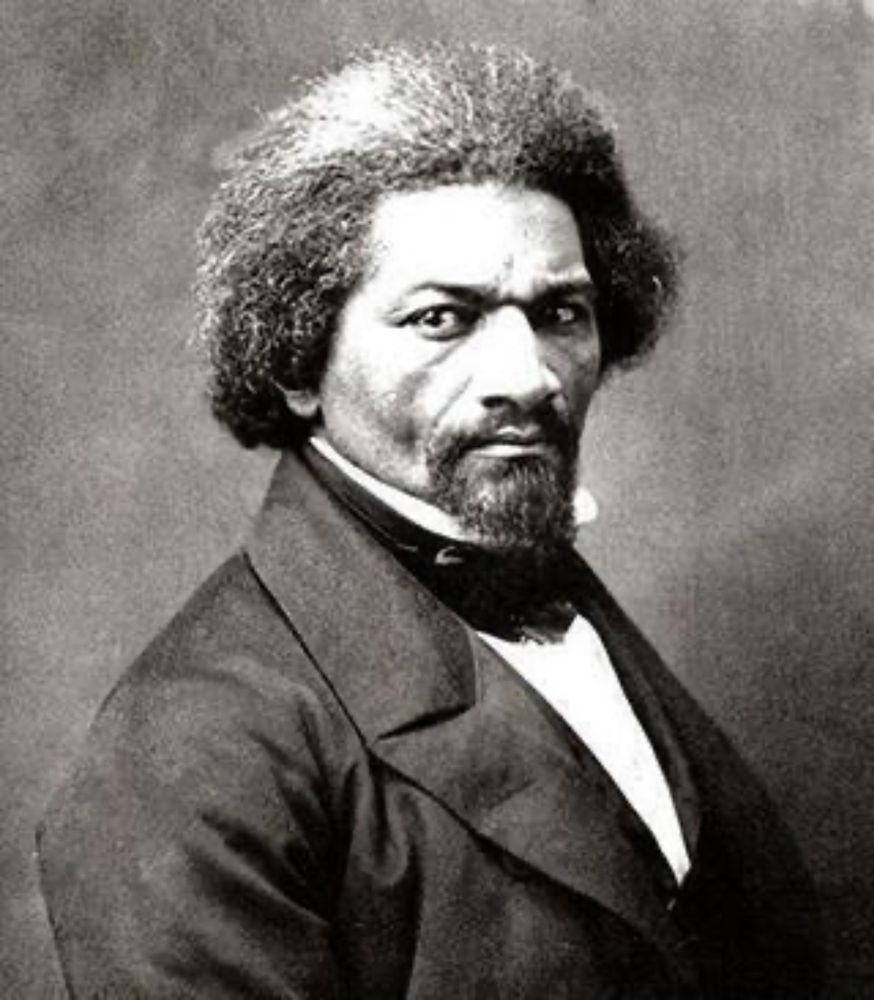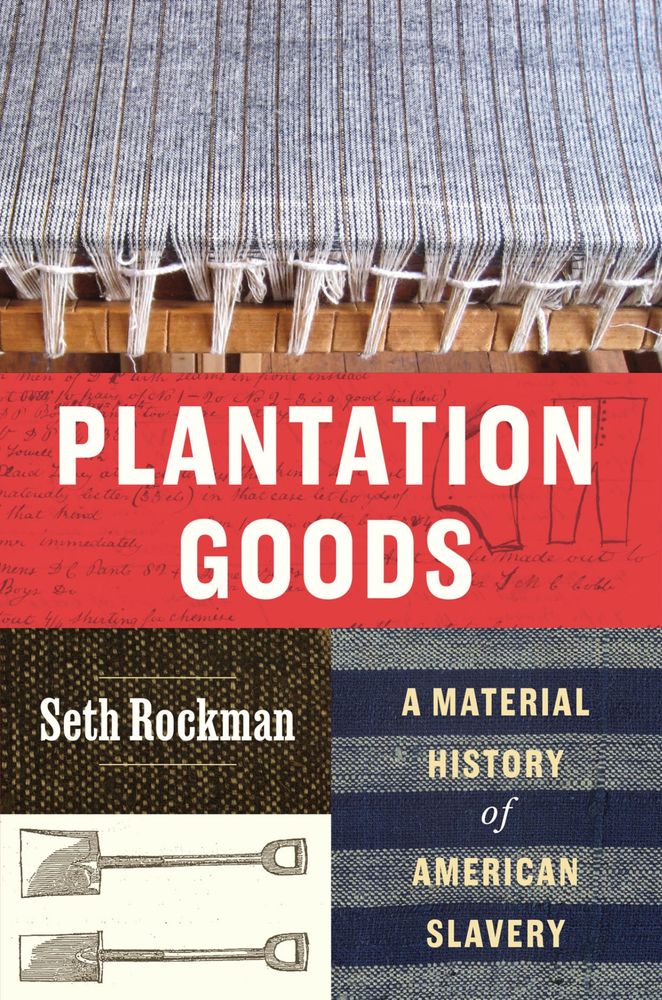
By following ordinary things from the New England communities where they were made to the Southern communities where they were used, the book charts the economic and social networks that made slavery a national enterprise in the nineteenth-century United States. 2/7
Two months from today is the publication date for **Plantation Goods: A Material History of American Slavery** This NYC hardware dealer's ad appeared in the leading periodical for Southern slaveholders, who themselves often came north on annual purchasing trips for textiles and tools. 1/7

How wonderful to see my Brown History Department colleague EMILY OWENS as a finalist for the Frederick Douglass Prize!!! **Consent in the Presence of Force** is a remarkable book: challenging, surprising, and deserving of everyone's attention. Congratulations, Emily!

New Haven, Conn.— Yale University’s Gilder Lehrman Center for the Study of Slavery, Resistance, and Abolition today has announced the finalists for the twenty-sixth annual Frederick Douglass Book
No, not Scottish. Could be residual preferences from the 18th c. when woolens from Wales, Scotland, and England were dominant in North Am. markets. Even by the Civil War, plaids still common for enslaved clothing. No evidence that specific plantations lay claim to proprietary designs.

likewise many of the palm-leaf hats that occupied the winter months of many New England farm women.
These many different kinds of stories all feature in **Plantation Goods: A Material History of American Slavery** publishing on November 5, 2024. Pre-orderable now. Please be in touch if you'd like to review, write about, discuss on a podcast, etc.

An eye-opening rethinking of nineteenth-century American history that reveals the interdependence of the Northern industrial economy and Southern slave labor. The industrializing North and the agricul...
These records can tell us more about sartorial strategies of enslaved people and about the expertise of enslaved seamstresses who converted yards of New England-made cloth into wearable garments that would have to withstand the performance demands of violently-coerced agricultural labor. 5/6
But perhaps more surprisingly, these records offer new glimpses of what slavery looked like: its color palate and its textures, for example, and the prevalence of woolen fabrics on Southern plantations. There is a tactile and haptic history here, as well as one that lets us think about movement. 4/6
Such records let us calculate the earnings of a specific teenaged weaver or follow the distribution networks that recruited New England women into textile production. These records can tell us about product design, marketing strategies, and the dynamic of interregional commerce. 3/6
The firm produced a dozen different plaids, some woven under its factory roof and others distributed to nearby families to produce at home . Finished fabrics vended in Baltimore, Charleston, New Orleans and esp. NYC, the hub of the national market in clothing and tools for enslaved people. 2/6
